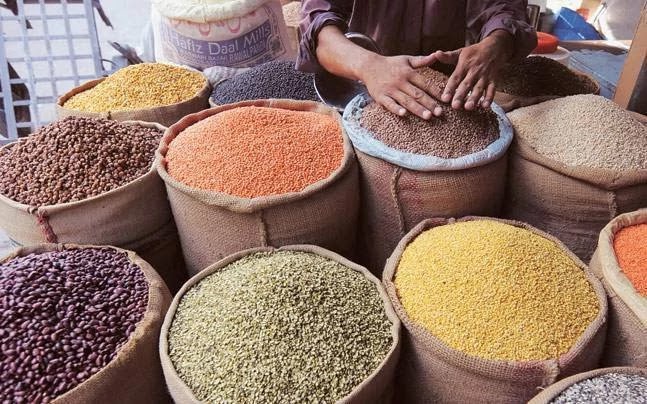This article is written by Anindita Deb, a student of Symbiosis Law School, NOIDA. This article aims to discuss the provisions of the Essential Commodities (Amendment) Bill introduced in 2020.
Table of Contents
Introduction
The Rajya Sabha passed the Essential Commodities (EC) (Amendment) Bill 2020 on 22nd September last year, which includes measures to remove cereals, pulses, oilseeds, edible oils, onion, and potatoes off the list of essential commodities. The Bill was first introduced in the Lok Sabha on September 14, 2020, by Shri Danve Raosaheb Dadarao, Minister of State for Consumer Affairs, Food & Public Distribution, to replace ordinances promulgated on June 5, 2020. On September 15, 2020, the Lok Sabha passed the Bill.
The EC (Amendment) Bill 2020 attempts to alleviate private investors’ concerns about excessive regulatory interference in their activities. The ability to produce, hold, move, distribute, and supply will allow for economies of scale to be realised and attract private sector and foreign direct investment into the agriculture industry. It will contribute to the expansion of cold storage facilities and the modernization of the food supply chain.
Minister of States for Consumer Affairs, Food & Public Distribution Shri Danve Raosaheb Dadarao, responding to a discussion on the Bill before it was cleared by the Rajya Sabha, stated that this modification is essential to reduce agri-produce wastage due to a shortage of storage facilities. He claims that this amendment will create a beneficial atmosphere for farmers, consumers, and investors, as well as making our country self-sufficient. According to him, this amendment will boost the agriculture sector’s overall supply chain mechanism. This legislation would also assist the government to fulfil its commitment to double farmer income by encouraging investment in the industry and making it easier to do business.
Background
Despite the fact that India has become surplus in most agricultural commodities, farmers have been unable to obtain better pricing due to a lack of investment in cold storage, warehouses, processing, and export, as the Essential Commodities Act, dampens the entrepreneurial spirit. Farmers lose a lot of money when there are bumper harvests, especially when it comes to perishable goods.
States can limit the amount of commodities that traders can store and restrict the movement of any commodity that is considered “essential.” The government is required by law to put stock limitations on a variety of things, including food commodities such as pulses, edible oils, and vegetables, in order to discourage hoarding.
Several experts argue that the Essential Commodities Act, 1955 was useful in the 1960s and 1970s, when India was still a net food importer. Government action under the ECA 1955 often damaged agricultural trade while being completely ineffective in controlling inflation, according to the Economic Survey 2019-20, which devotes an entire chapter to the topic. “First, frequent and unpredictable imposition of blanket stock limits on commodities under the Essential Commodities Act (ECA) neither brings down prices nor reduces price volatility. However, such intervention does enable opportunities for rent-seeking and harassment,” the Economic Survey had said. Economists use the phrase “rent-seeking” to denote unproductive revenue, such as that derived by corruption.
For example, stock limitations on dal (lentils) in 2006, sugar in 2009, and onions in September 2019 increased “the volatility of wholesale and retail prices instead of smoothening them,” according to the survey.
Because merchants’ large stocks can be outlawed at any time under the ECA 1955, they tend to buy significantly less than their regular capacity, causing farmers to lose a lot of money during perishable harvest surpluses.
According to a 2018 report by the Organisation of Economic Cooperation and Development (OECD), a collection of 36 countries, and the New Delhi-based research organisation Indian Council for Research on International Economic Relations (ICRIER), such laws have kept poor farmers poor by restricting possibilities to export when global crop prices rise.
The Bill will encourage investment in cold storage facilities and the upgrading of the food supply chain. It will benefit both farmers and consumers while stabilising prices. It will establish a competitive market environment and avoid agri-produce wastage caused by a lack of storage space.
Key features of the Bill
The following can be highlighted as the key feature proposed by the Bill:
Regulation of food items
The Act allows the central government to designate particular commodities as essential commodities (such as food, fertilisers, and petroleum products). The production, supply, distribution, trade, and commerce of such important commodities may be regulated or prohibited by the central government. The Ordinance stipulates that the central government may only restrict the supply of particular foods, including cereals, pulses, potatoes, onions, edible oilseeds, and oils, under exceptional circumstances. These include:
- War
- Famine
- Extraordinary price hikes
- Natural disasters of grave nature
Imposition of stock limits on these commodities
The Act gives the central government the authority to restrict a person’s stock of an essential item. The Ordinance stipulates that any stock limit imposed on specific commodities must be based on rising prices. Only if there is a 100 per cent increase in the retail price of horticulture produce and a 50 per cent increase in the retail price of non-perishable agricultural food items can a stock restriction be imposed. The increase will be computed based on the price in effect for the previous twelve months, or the average retail price for the previous five years, whichever is lower.
Any stock limit imposed on a processor or value chain participant of agricultural produce will not apply if the stock held by such person is less than the following:
- The overall ceiling of installed processing capacity, or
- Demand for export in the case of an exporter.
A value chain participant is someone who is involved in the production or value addition of agricultural products at any stage of processing, packaging, storage, transportation, and distribution.
While liberalising the regulatory framework, the government has ensured that consumer interests are protected.

Applicability of the provisions of the Bill on the Public Distribution System (PDS)
Any government order relating to the Public Distribution System or the Targeted Public Distribution System will be exempt from the provisions of the Bill addressing the restriction of food items and the imposition of stock limitations. Foodgrains are distributed by the government at subsidised costs to those who are eligible under these systems.
Benefits of the Bill
The following can be seen as the expected benefits which can be reaped through the implementation of the Bill:
- The freedom to produce, hold, move, distribute, and supply will allow the agriculture industry to benefit from economies of scale and attract private sector/foreign direct investment.
- The amount of money spent on cold storage and modernising the food supply chain will rise.
- It will foster a competitive market environment while also reducing agri-produce waste caused by a shortage of storage facilities.
- It will benefit both farmers and consumers while stabilising prices.
Issues raised against the Bill
While the Bill seems to carry the objective of uplifting the farmers’ conditions, people have raised certain concerns. Many experts have criticised the Bill on the grounds that it will be a highly centralised law that will infringe on state authority, as states will be unable to regulate problems such as hoarding and black marketing, for example.
Instead of benefiting producers, the Essential Commodities Act’s stock limit relaxations may lead to illicit marketing and hoarding. This will result in more inflation and a monopoly of a few people on the prices of certain goods.
Conclusion
For a country like India, where a large chunk of the population depends on agriculture and related activities for earning a livelihood, it is important that the government addresses the needs of the farmers, traders, merchants etc., and makes it easier for them to sell their produce.
When India’s foodgrain production was insufficient, the Essential Commodities Act of 1955 was enacted. However, most agri-commodities are presently in surplus in India, and the government’s revisions to the Act of 1955 are a major step in achieving its goal of doubling farmers’ income and paving the way towards ease of doing business.
References
- https://prsindia.org/billtrack/the-essential-commodities-amendment-ordinance-2020
- https://www.hindustantimes.com/india-news/decoding-the-impact-of-eca-amendments/story-zytnowEInD30QSyIE8oPbK.html
- https://www.drishtiias.com/daily-updates/daily-news-analysis/essential-commodities-amendment-bill-2020
LawSikho has created a telegram group for exchanging legal knowledge, referrals and various opportunities. You can click on this link and join:
https://t.me/joinchat/J_0YrBa4IBSHdpuTfQO_sA
Follow us on Instagram and subscribe to our YouTube channel for more amazing legal content.
 Serato DJ Crack 2025Serato DJ PRO Crack
Serato DJ Crack 2025Serato DJ PRO Crack










 Allow notifications
Allow notifications


